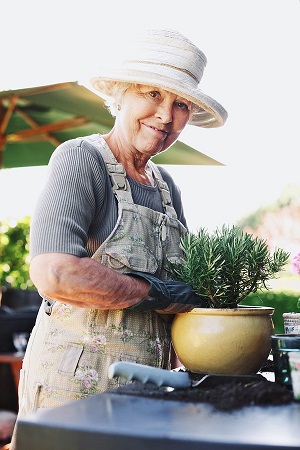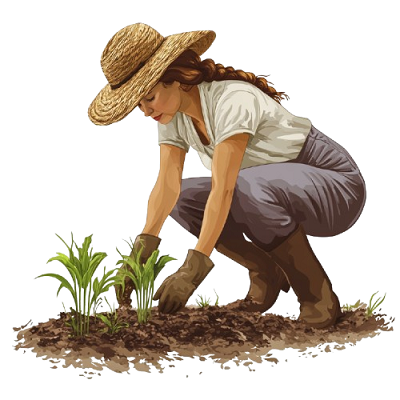Gardening for Stress Relief
 One activity proven to fight stress that leads to premature aging and chronic conditions that accompany the aging process – is gardening. Evidence exists which proves that gardeners may live up to 14 years longer than non-gardeners.
One activity proven to fight stress that leads to premature aging and chronic conditions that accompany the aging process – is gardening. Evidence exists which proves that gardeners may live up to 14 years longer than non-gardeners.
That’s an impressive reason to take up gardening as an activity in your own life. In studies of areas where life expectancy far out-performs the norm for the rest of the world, the findings were definitely linked back to gardening as one reason these people enjoyed a longer and healthier life span.
These areas have been named “blue zones,” and exist in pockets all over the world. There are many factors involved in the findings, but there are key issues that stand out more than others.
Gardeners get certain nourishment, not just from eating the bounty of their gardens, but from touching the soil from which the garden produces the food. Touching the actual soil with your bare hands can help to build positive energy resulting from the positive elements contained in the soil.
Those who never have contact with the earth miss that crucial way to prevent disease and to benefit from all that the earth offers. As you age, contact with the earth becomes even more vital and beneficial to your life and your feelings of well-being. Continue reading
 The scientific term for healthful bacteria that soil contains is Mycobacterium vaccae – a non-pathogenic form of bacteria found naturally in dirt. This amazing form of bacteria can increase serotonin levels that keep your mood upbeat and help reduce allergies and other physical disorders which arise from the “clean-obsessed” society in which we live.
The scientific term for healthful bacteria that soil contains is Mycobacterium vaccae – a non-pathogenic form of bacteria found naturally in dirt. This amazing form of bacteria can increase serotonin levels that keep your mood upbeat and help reduce allergies and other physical disorders which arise from the “clean-obsessed” society in which we live.
Serotonin is a chemical which acts as a neurotransmitter in the brain – meaning that it signals messages from one area of the brain to another about your health and mental well-being.
Although serotonin is derived from the brain, it’s been proven that over 90% of serotonin in your body comes from blood platelets and your digestive tract. Serotonin’s makeup includes tryptophan and tryptophan hydroxylase which react together to form what we call serotonin. Continue reading